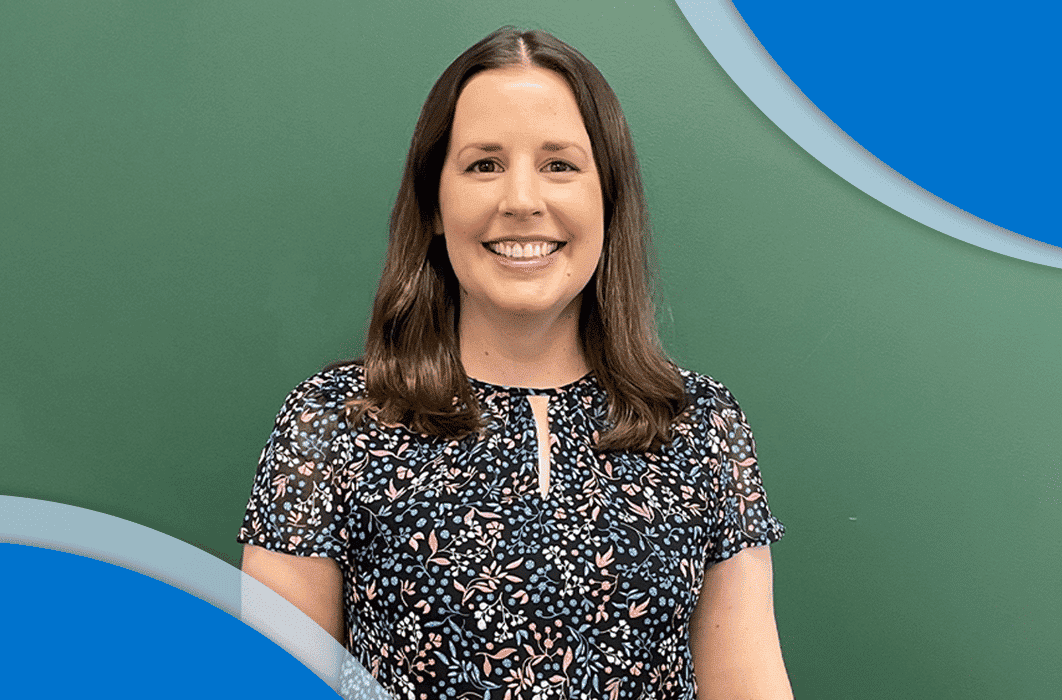Lauren Koch | Senior Product Developer
Lauren Koch first became involved with MultiLit in 2021, applying her speech pathology experience to the scoring of assessments and analysis of language samples in trials of our new oral language intervention program LanguageLift, before joining the team as a Senior Product Developer. Learn more about Lauren and her work bringing LanguageLift to life.

What inspired you to get into education?
My background is in speech pathology and in my first role with a disability support provider I spent a lot of time finding ways to better support children while they were at school. I experienced how powerful working in collaboration with educators could be for a child’s language development, so when I had the opportunity to work within a school, rather than alongside one, it was a no-brainer.
It’s really motivating to work with students in a school context, seeing firsthand the daily impact of their difficulties and then being able to regularly work towards achieving their goals and improving their learning. You get to know the students and their families so well, and it’s very rewarding seeing their progress as they move through the years.
Tell us a bit about your background and experience.
I became interested in speech pathology when I majored in linguistics during my undergraduate degree, but I didn’t go straight into it as I was still keen to pursue journalism. I started my career writing about resource and energy projects in WA and while I enjoyed the work it didn’t feel particularly fulfilling, so I decided to return to study. My love of learning about language was a perfect fit for speech pathology.
I have spent the majority of my 11 years as a speech pathologist working in a Language Development Centre (LDC). Unique to WA, LDCs are government schools for children with Developmental Language Disorder from Kindergarten to Year 2.
My passion for education has extended to supervising final-year speech pathology students on placement at the LDC. In some ways, it feels like my career has come full circle as I also did a placement at the LDC. I hope to inspire the next generation of speech pathologists to seek out opportunities to work within education.
In early 2021, I completed a copy editing and proofreading course – little did I know how invaluable those skills would be when it came to editing LanguageLift!
What are some of the key responsibilities of your role at MultiLit?
My role is incredibly varied. I’ve been involved in the review and editing of program materials, scripting of lessons, designing resources, developing language assessments, analysing results from trials, researching language and literacy topics … the list goes on! It’s a fantastic opportunity to combine my knowledge and skills as a speech pathologist and my experience working in schools designing language and literacy programs.
What are you most excited about with the release of LanguageLift?
I am so excited for schools to finally have access to such a comprehensive oral language intervention program. My experience is that educators are skilled at identifying children with language difficulties in the early years, but then are unsure of exactly how to support them while they wait to see a speech pathologist for specialist input. LanguageLift empowers schools to improve children’s oral language skills, regardless of the underlying cause, in a really fun and engaging way. I think educators will learn a lot about oral language through the training and from delivering the program.
Why is oral language important as a bridge to reading?
Very simply, the point of reading is to understand what someone has written. Comprehension and vocabulary skills are critical for making meaning from a text and making a connection between the marks on a page and the ideas they represent. You may be able to read about quantum physics, but unless you understand the key vocabulary and the context, what would be the point? So, if we want children to become good readers, we can’t ignore their oral language development.
What’s one thing you wish more people knew about literacy?
I wish people understood that writing systems are inventions and not something we are born with the ability to use. I like to think of reading and writing as playing a musical instrument. No one expects to be a skilled musician straight away, and certainly not without specialist instruction and lots of practice! It’s the same for literacy, however, unlike playing a musical instrument, being able to read and write are essential to fully participate in education and society more broadly. We need to set students up for success by giving them high quality instruction and intervention from the outset.